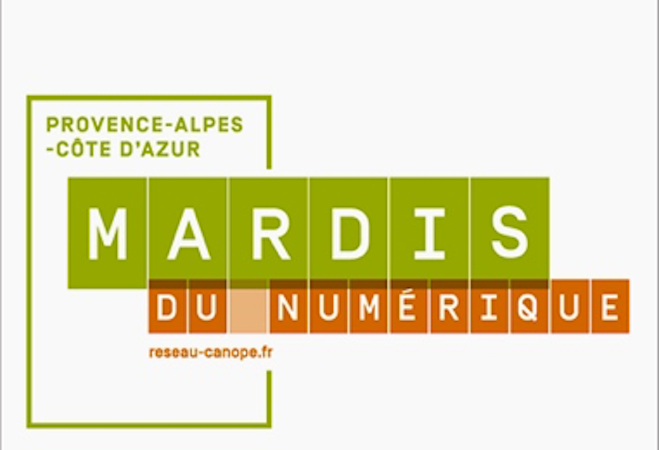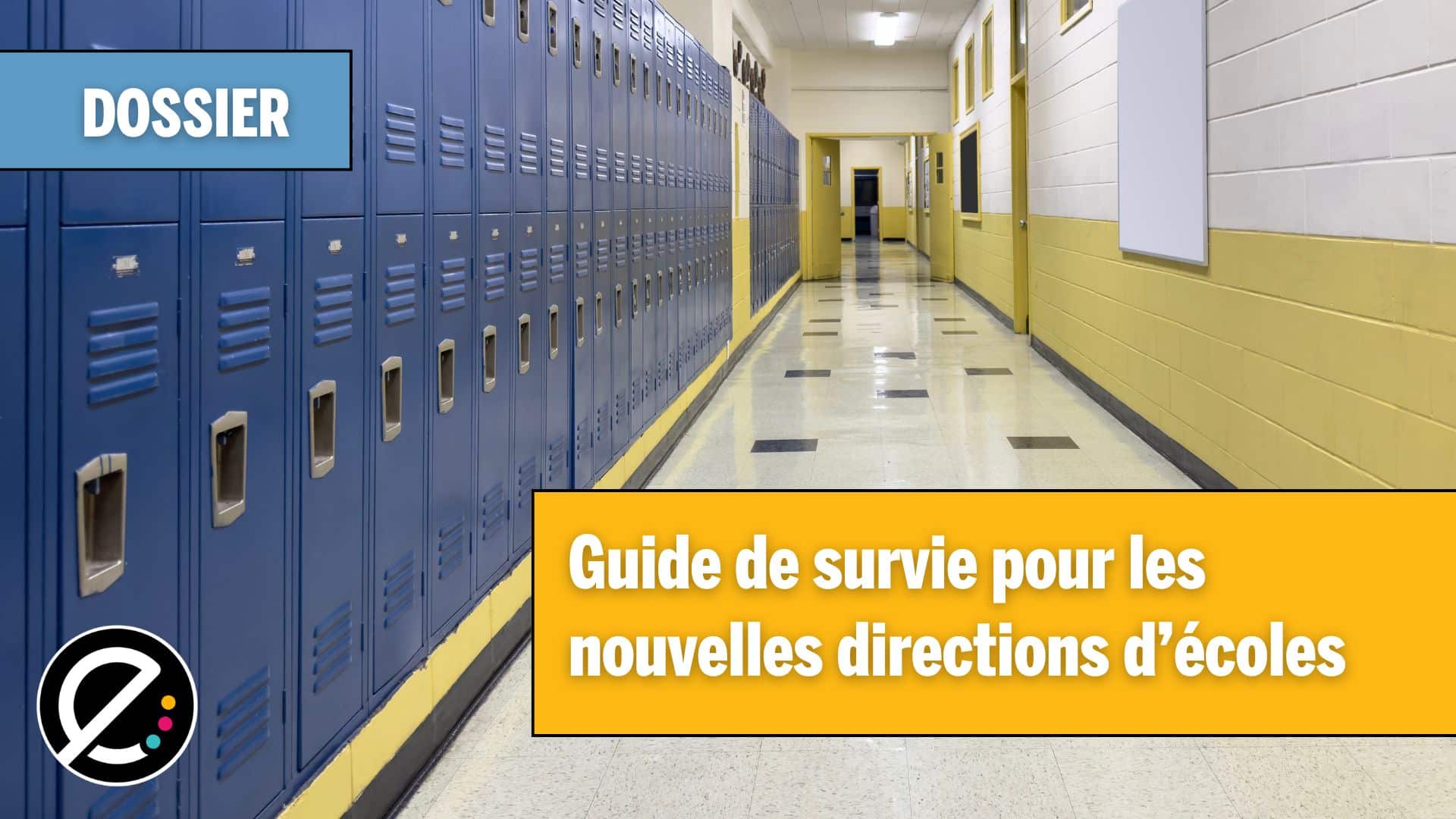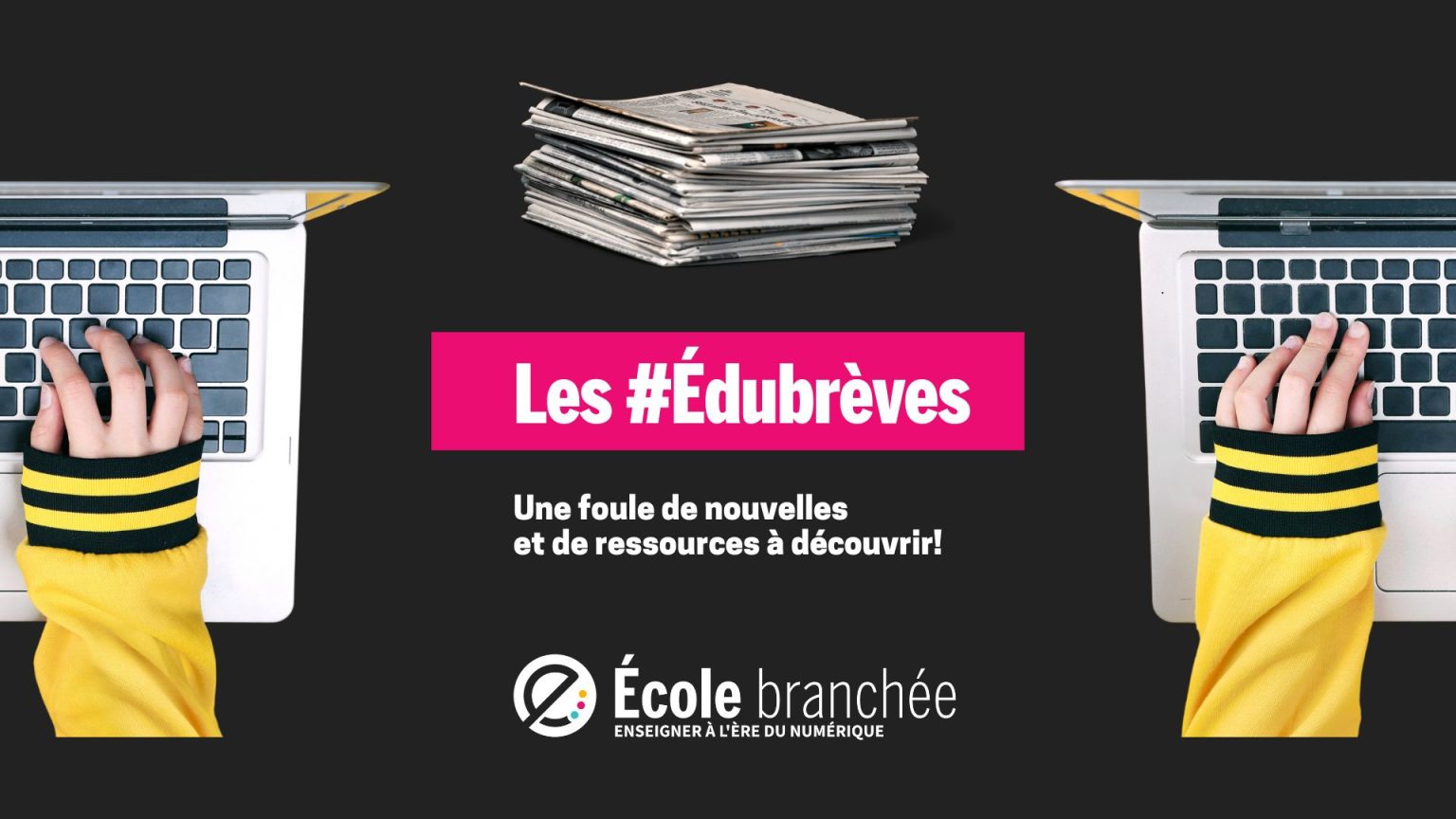Je suis en stage du 13 novembre 2017 au 16 janvier 2018 au Laboratoire d’Innovation et du Numérique pour l’Éducation (#fabLINE) de l’ESPE de l’Université Nice Sophia Antipolis, une équipe de recherche dirigée par Margarida Romero.
C’est dans ce contexte que j’ai participé, le 14 novembre dernier, aux ateliers du Mardi du numérique, organisés par la direction territoriale Provence-Alpes-Côte d’Azur du réseau Canopé et les rectorats d’Aix-Marseille et de Nice.
Les mardis du numérique
Les mardis du numérique sont des moments de formation qui s’adressent aux enseignants et cadres du primaire et du secondaire ainsi qu’à tout spécialiste du domaine de l’éducation. Les objectifs de ces rencontres sont de développer la culture numérique et de partager des pratiques inspirantes. Cette année, la thématique générale aborde le thème des nouvelles formes scolaires à l’ère du numérique.
Apprendre dans la ville de demain
Au Québec, il n’est plus nécessaire de présenter Margarida Romero dont le travail à l’Université Laval est connu. La conférence – Créativité et numérique dans l’école et dans la ville – en début de journée, a présenté le projet #CoCréaTIC et le laboratoire #fabLINE. La conférence a été suivie d’un atelier participatif.
Les objectifs de #CoCréaTIC sont de développer des valeurs humanistes par le biais d’une éducation co-créative, ludique, engageante et inclusive afin de favoriser le développement de compétences comme la co-créativité et la résolution de problèmes. Le laboratoire de recherche #fabLINE travaille selon deux axes principaux. Serge Quilio dirige l’axe sur l’innovation pédagogique et Cindy De Smet dirige l’axe sur les usages créatifs du numérique, qui vise favoriser la créativité des enseignants selon les deux perpectives enseignants et apprenants.
A partir des travaux des projets CoCreat et CoCreaTIC développés avec des collègues à l’international, Margarida définit la créativité collaborative comme un processus contextuel de création partagée. La solution ou l’idée proposée se doit d’être jugée originale, pertinente et utile. Puis elle a présenté le modèle passif-interactif des usages du numérique à l’école, c’est-à-dire un continuum allant de la consommation passive du numérique, par exemple la lecture de documents, la consommation interactive où l’élève complète des exercices avec possibilité d’autocorrection, la création et la co-création de contenu en utilisant iMovie par exemple et la co-création participative de connaissances ou d’artéfacts dont le projet #SmartCityMaker est un excellent exemple. La robotique pédagogique peut devenir un projet essentiellement interdisciplinaire passant de la robotique procédurale versus un projet de robotique co-créative en vue de résoudre un défi. C’est une formidable opportunité pour le développement de compétences du 21ème siècle.
L’école est plus qu’un lieu d’apprentissage passif. L’école peut devenir un lieu d’appartenance collective où l’élève participe au développement de la ville de demain.
Devenir citoyen dans la ville de demain
La table ronde est animée par David Cohen, médiateur numérique à l’atelier Canopé de Nice. L’évolution des pratiques pédagogiques demande une évolution des postures et des espaces scolaires.
Fabien Hobart des Savanturiers, l’École de la Recherche, souligne que l’éducation par la recherche incite à doter les habitants des villes de demain d’outils réflexifs leur permettant d’agir sur leur environnement immédiat.
Stéphane Delahaye est conseiller municipal au développement numérique à la ville de Martigues. Le citoyen doit être capable de comprendre cette nouvelle société et la ville intelligente de demain. Démocratie participative, esprit critique, collaboration et créativité doivent maintenant devenir une importante partie de l’éducation autant que de savoir écrire, lire et compter.
Olivier Varraud et Amal Jamet, enseignants au collège Roumaville présentent le fabuleux projet Lab’éducation. Trois enseignants travaillent ensemble selon un modèle de team teaching dans un local de 230 mètres carré comprenant plusieurs zones modulables (tout le mobilier est sur roulettes), au sein duquel trois groupes classe circulent librement selon leurs activités respectives. Ce qui m’a particulièrement séduite dans ce projet n’est pas uniquement l’esthétique du lieu, la modernité du concept d’enseignement mais principalement le souci accordé à l’intégration du projet aux pratiques pédagogiques de l’ensemble des enseignants de ce collège. Ici, on ne voit pas cette scission eux et nous, mais nous ne sommes que nous, où certains présentent des cours magistraux, des activités classiques et individuelles, d’autres intègrent graduellement l’usage du numérique à divers niveaux à leur enseignement, d’autres encore travaillent en team teaching sur des enseignements centrés sur la pédagogie de projets.
En après-midi
Quatre ateliers étaient offerts. J’ai participé à celui de Margarida : Crée ta ville #SmartCityMaker.
Voici ceux auxquels je n’ai malheureusement pas pu participer :
- Repenser les espaces d’apprentissages proposait une réflexion sur le projet d’aménagement d’espaces en lien avec un projet pédagogique identifié. Les participants disposaient d’un canevas pour les guider dans l’élaboration de leur proposition.
- Apprendre avec l’Open data : les données sont au coeur du processus de compréhension du développement. L’usage et le partage des données publiques peut encourager les initiatives locales à collaborer.
- Territoires apprenants dispositifs éducatifs citoyens a comme principal objectif de découvrir des dispositifs pédagogiques ayant la ville comme support.
Les mardis du numériques sont un concept où conférence d’ouverture, table ronde d’échanges et ateliers participatifs permettent de dynamiques échanges et une formation continue aux enseignants et éducateurs d’une région et favorise la création de liens entre eux. Un concept à imiter.
Pour aller plus loin
Le Laboratoire d’Innovation et Numérique pour l’Education (#fabLINE)
http://espe-nice-toulon.fr/la-recherche/laboratoires-et-instituts-de-recherche/line
Le projet #SmartCityMaker
https://goo.gl/T2gXE2
Le projet CoCreaTIC
http://fr.cocreatic.net/
Les Savanturiers
https://savanturiersdesvilles.wordpress.com
Raconte ta ville
https://www.reseau-canope.fr/raconte-ta-ville/accueil/






